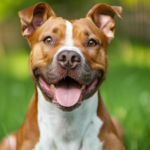Welcome to the exciting journey of raising a well-behaved puppy! Bringing a new furry friend into your home is an incredibly rewarding experience, but it also comes with its challenges. In this comprehensive guide, we’ll explore effective training tips to help you transform your adorable bundle of joy into a well-mannered companion.
Understanding Your Puppy
Getting to know your new puppy is the first step towards successful training. Each puppy has its own unique personality and temperament, so it’s essential to understand their needs and behaviors. Spend time observing your puppy’s habits and preferences to tailor your training approach accordingly.
Setting the Stage for Success
Creating a conducive environment is crucial for effective training. Make sure your home is puppy-proofed to prevent any accidents or injuries. Establishing consistent routines for feeding, potty breaks, and playtime helps your puppy feel secure and understand what is expected of them.
Basic Training Techniques
Potty training is often one of the first challenges new puppy owners face. Consistency and positive reinforcement are key to successful potty training. Additionally, crate training provides your puppy with a safe space and helps instill good behavior.
Positive Reinforcement
Reward-based training is highly effective in encouraging desired behaviors in puppies. Use treats, praise, and toys as rewards to reinforce positive behaviors such as sitting, staying, and coming when called. Be generous with your praise and rewards to motivate your puppy to learn.
Socialization and Interaction
Exposing your puppy to different environments, people, and animals from a young age is essential for their social development. Organize supervised playdates with other dogs and introduce your puppy to various sights, sounds, and smells to build their confidence and prevent fearfulness.
Handling Behavioral Challenges
Chewing, barking, and separation anxiety are common behavioral challenges in puppies. Provide plenty of chew toys to redirect their chewing behavior, use positive reinforcement to discourage excessive barking, and gradually desensitize your puppy to being alone to alleviate separation anxiety.
Health and Wellness
Regular veterinary check-ups are vital for ensuring your puppy’s health and well-being. Vaccinations, deworming, and preventive care are essential to protect your puppy from diseases and parasites. Additionally, providing a balanced diet and regular exercise supports your puppy’s growth and development.
Grooming and Hygiene
Maintaining your puppy’s grooming and hygiene is important for their overall health and comfort. Bathe your puppy regularly using a mild shampoo suitable for their coat type, and brush their fur to prevent matting and tangling. Don’t forget to brush your puppy’s teeth regularly to prevent dental issues.
Advanced Training Tips
Once your puppy has mastered basic obedience commands, you can move on to teaching them fun tricks and advanced behaviors. Keep training sessions short and engaging, and always end on a positive note. With patience and consistency, your puppy will continue to thrive and learn new skills.
Patience and Consistency
Above all, remember that training takes time and patience. Be consistent in your approach, and don’t get discouraged by setbacks. Celebrate your puppy’s progress, no matter how small, and always approach training with a positive attitude.
FAQ Section
How often should I train my puppy? Training sessions should be kept short (5-10 minutes) and frequent, ideally several times a day.
What should I do if my puppy has accidents indoors? Clean up accidents promptly using an enzymatic cleaner to eliminate odors and discourage repeat accidents.
When should I start socializing my puppy? Start socializing your puppy as soon as they are fully vaccinated, typically around 12 weeks of age.
How do I prevent my puppy from chewing on furniture? Provide plenty of appropriate chew toys and supervise your puppy closely to redirect their chewing behavior.
What should I do if my puppy cries at night in their crate? Ensure your puppy’s crate is comfortable and cozy, and try placing a warm water bottle or ticking clock inside to mimic the warmth and heartbeat of their littermates.
Is it normal for puppies to bite during play? Yes, puppies explore the world with their mouths, but it’s important to discourage biting behavior by redirecting their attention to appropriate toys.
By following these training tips and techniques, you can help your new furry friend develop into a well-behaved and happy companion. Remember to be patient, consistent, and always shower your puppy with love and affection as you embark on this wonderful journey together.

